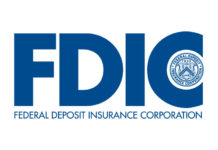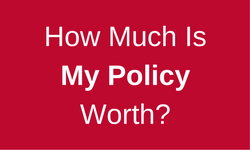
For those in need of instant cash and who have an insurance policy that they are thinking of surrendering, life settlements may offer a viable and promising solution. However, while life settlement companies tout the benefits of their policies, there a number of factors concerning life settlements that they don’t want policy holders to know about – and rightly so. The issues surrounding a life settlement policy certainly are ones to be worried about. The good news is that with the right management techniques, information, and effort, one can adequately protect themselves.
The Basics Of A Life Settlement Policy
Before delving into what life settlement companies do not want policy holders to know, it is necessary to understand the basics of such policies. Essentially, a life settlement, previously known as viatical, is a transaction between a policy holder and a life settlement company. In the transaction, the policy holder sells their life insurance policy to the settlement company for an amount above the surrender value, but below the death benefit. Depending upon the company one is dealing with, it may assume the premium payments. While this does not seem like a bad transaction, it certainly can be if one is misinformed and does not do their due diligence
Recently, to improve their numbers and to introduce life settlements to more individuals, one life settlement company recruited actress Betty White. In the advertisement, she calls life settlements ideal for “savvy senior citizens needing cash.” This certainly isn’t a false statement – but it does require one to be savvy and unfortunately, many aren’t when it comes to policies, not because they don’t research enough, but due to the fact that understanding the ins and outs of policies can be complicated, especially for older individuals unversed in technical terminology.
Therefore, to improve one’s chances of choosing the right policy and to enhancing their level of information, here are a few of the qualities that users should be aware of in terms of what life settlement companies do not want policy holders to know:
Life Settlements Pose Privacy Risks
Technology is evolving and private policy statements are difficult to find and understand. These issues make it exceedingly difficult to determine whether their information is safe. Those who choose a life settlement are prone to privacy issues because the policy can be sold off to a third-party, such as an investor, bondsman, hedge fund manager, and so forth. These parties not only have the policy in their hands, but also the information that comes with the life insurance policy – such as a rage of personal data, one’s health condition, and more.
Even more harrowing is that one’s life insurance policy can end up in the hands of thugs and those who may want to take the course of someone’s life into their own hands to score a buck. This type of scenario is exactly what a new book called The Carnage Account by Ben Liberman contemplates.
Financial Risks Are Possible, Too
Aside from the privacy policy risks, there are financial risks as well. Many individuals think that when they choose a life settlement, they’ll receive a windfall of cash. While this may be true in some instances, sometimes a life settlement can be a bad option as well. Brokers earn a commission, so it is in their best interest to convince individuals that it is a “good deal” and one in the policy holder’s best interest. However, if one does the math, the surrender value may be close enough to the life settlement amount and further, it could be a great deal less than the death benefit.
Worse, one may also find themselves paying for the policy’s premiums or another potential policy that they are interested in purchasing with the proceeds may be a worse policy than the initial one. Taking these factors into consideration can help individuals may better decisions about their life settlement policy and whether it is the right solution for them.
Ultimately, the best thing that individuals can do to protect themselves is to make sure that they are informed and have the tools and resources that they need to make the right decision. Hopefully the information contained herein provided some insight and support.

![How To Exchange Life Insurance Settlement Policy For Cash Money [Guide] How To Exchange Life Insurance Settlement Policy For Cash Money](https://whylifesettlements.com/wp-content/uploads/2018/01/How-To-Exchange-Life-Insurance-Settlement-Policy-For-Cash-Money-218x150.jpg)








